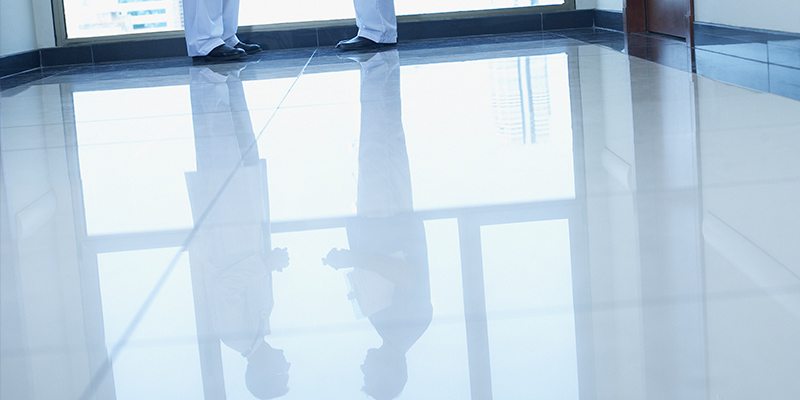Flooring contractors and moisture: An uneasy relationship

Talk to flooring contractors around the country about moisture issues and you’ll hear a variety of viewpoints. Some contractors we’ve spoken with say the vast majority of the projects they work on—up to 90% in some cases—have moisture problems. Other contractors say that moisture issues requiring remediation are rare. What’s going on?
Certainly some of the difference is regional. Moisture conditions in the wet northwest will naturally be very different from those in the dry environments of the Southwest. But some of the difference may lie in a lack of awareness or attention among some contractors of the potential risk associated with moisture damage.
Contractors are under pressure to complete projects on ever-shorter schedules with ever-tighter budgets. The imperative to get the job done quickly and efficiently may overshadow the need to fully test concrete slabs to determine whether moisture remediation is called for. Replacing a floor that has been damaged by moisture can cost many times the original installation expense and this risk should be taken seriously. It only takes one such experience to change the way a contractor views moisture testing and mitigation.
Contact a flooring specialist today
Failing to properly test for moisture may also void the flooring product warranty. Many warranties require relative humidity (RH) testing according to the current ASTM standard to ensure a concrete slab is dry enough to allow proper installation of their products. Test results from older methods, such as the “plastic sheet” method or conducting calcium chloride testing, will not suffice to support a warranty claim.
RH testing is just part of the story, however. Comprehensive testing of the concrete slab or subfloor should also include PH testing. High alkaline levels are not compatible with certain flooring materials and adhesives, and can degrade them over time. Despite the fact that high PH levels are a common cause of flooring failure, this test is often overlooked by contractors.
Remember that while moisture testing is important, it only provides a snapshot in time. Changing seasonal and weather conditions can impact the moisture levels of concrete slabs quite dramatically. That’s why, it’s so important for flooring contractors to educate themselves about the moisture mitigation strategies available to help protect their installed floors—and their valuable reputations.
Tags
- Airports
- Architects
- Arts & education
- Commercial buildings
- Contractor
- Energy efficient solutions
- Energy facilities
- Engineer
- Flooring
- Industrial facilities
- Museums
- Repair and Renovation
- Residential buildings
- Retail buildings
- Schools
- Sports stadiums
- Subcontractor
- VersaShield